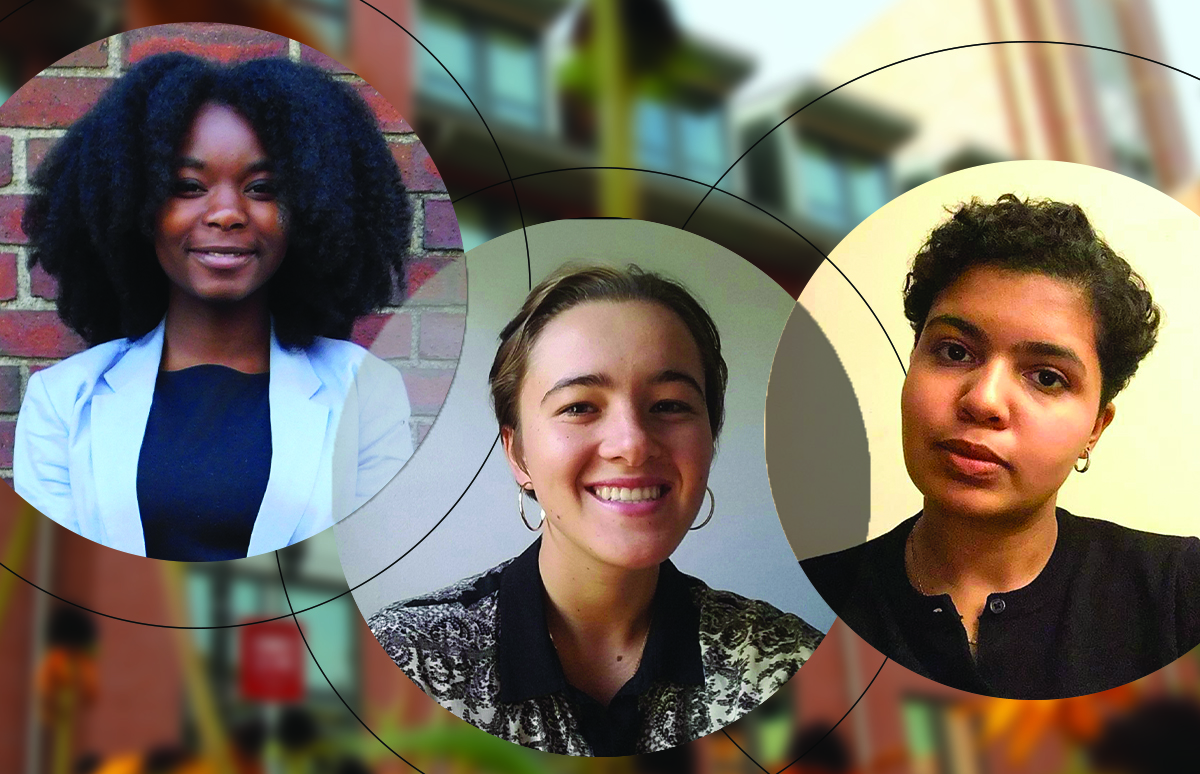Last spring, the murders of George Floyd and Breonna Taylor, and long histories of violence and discrimination spurred national protests and activism. Like the rest of the country, the Honors College at Rutgers–New Brunswick and its students, staff, and faculty deeply felt the impact of these events. The renewal of the Black Lives Matter movement brought to the surface the many ways inequality persists in our society and what we as the Honors College can do to foster a deeper culture of belonging for all. The deans of the Honors College recommitted to the values of a diverse, equitable, and inclusive community, calling upon the students to hold administration accountable for the way forward.
Concurrently, the students were already involved in a two-page draft that advocated for students to take more classes around diversity, equity, and inclusion. This draft flourished into a robust call to action, citing the Honors College’s emphasis on students engaging in positive social change by combining intellectual and scholarly rigor with humanistic values and empathy. Thus, True Inclusion was born. Founded by classmates Assata Davis (from left, '21, SAS/HC), Adriana Scanteianu ('21, SAS/HC), and Gabrielle Jacob ('20, SEBS/HC), True Inclusion worked over the summer, surveying students, examining Honors College curricula and programmatic offerings, researching models, and preparing substantial concrete recommendations, which they submitted to the deans and university leadership in August. To date, True Inclusion students stand out in their willingness and ability to forge a working partnership through research, investigation, and engagement with university leadership in a truly collaborative spirit.
True Inclusion identified specific ways the Honors College could improve to create a more diverse, equitable, and inclusive community, and in the months that followed their report, Gabby, Assata, and Adriana drew on a cohort of their peers to create committees addressing admissions, the Forum mission course, the Honors College curriculum, and assessment. Working with the Honors College staff and deans along with experts and leaders from across the university, these committees have had a significant impact on the Honors College and beyond in less than a year, building on our continued affinity groups, diversity peer educators’ program, and personalized network of academic, emotional, and social support.
The group was instrumental in revising the Honors College’s mission statement, with an elaboration of how our motto—Curiosity. Knowledge. Purpose.—relates to questions of diversity and inclusion. The new mission statement reflects our foundational ideal that
true knowledge and responding to the 21st century’s most challenging problems depend on bringing diverse perspectives and ideas together.
By meeting with the deans and teaching fellows, True Inclusion helped to evolve changes in the Forum to address concerns about better engaging communities as partners in a more culturally sensitive way.
The curriculum committee, which included faculty and staff, advocated for specific new requirements, including a one-credit cultural competency course in the first year—to be piloted this fall—and a RICE (Race, Inequity, and Cultural Engagement) course to further develop students’ understanding of those interconnected experiences and issues. Finally, True Inclusion’s call for a more truly diverse student body helped lead to a significant increase in invitations to students from underrepresented groups for next fall’s entering class.
Throughout all these efforts, Assata, Gabby, and Adriana have demonstrated their ability to work both with students and with university leadership. The members of True Inclusion have deepened their understanding of the structural complexities underlying these issues and have worked tirelessly to make broader connections so as to ensure their efforts can address challenges at their most foundational levels. Doing so, they have further articulated their vision as a potential model not just for the Honors College but for Rutgers as a whole, meeting with university leaders, including President Jonathan Holloway, whose emphasis on creating a beloved community based on transparency and inclusive excellence echoes their call to action.
Equally important, as they move on to the next stage of their lives and careers, they have created a student-led organization and structure and developed the connections to ensure that the work they have begun will continue after they leave Rutgers. Their work truly exemplifies both the Honors College’s openness to learning from its own community and the centrality of our students to those efforts. Because of True Inclusion’s leadership, the Honors College and Rutgers have made substantial strides in moving closer to becoming a beloved community. We look forward to seeing their impact on the wider world.
